Frequently Asked Questions
General Questions About Our Firm
What areas of law does Structura Law focus on?
Structura Law is a boutique litigation firm that focuses on several key practice areas, including Construction Law, Insurance Coverage and Disputes, Outdoor Recreation Law, and Business Litigation throughout Colorado. Our founding attorney, Jennifer Arnett, brings sophisticated legal experience from top NYC law firms and as former Chief Litigation Officer for a national property and casualty insurance company.
Do you offer remote consultations?
Yes, we offer consultations by phone and video conference. This flexibility allows us to serve clients throughout Colorado effectively and efficiently.
What areas of Colorado do you serve?
Structura Law serves clients throughout the state of Colorado, including Denver, Boulder, Fort Collins, Colorado Springs, and mountain resort communities. Our Boulder location allows us to effectively represent clients statewide.
Working with Structura Law
-
At Structura Law, we believe in regular, clear communication with our clients. You can expect:
Regular updates on significant case developments
Prompt responses to your questions and concerns
Advance notice of important deadlines or events
Copies of substantive correspondence and court filings
Periodic case reviews and strategy discussions
Clear explanations of legal concepts and options in plain language
-
Structura Law combines sophisticated legal expertise with personalized service and practical business understanding. Our distinguishing features include:
Experience Across Perspectives: Having represented both plaintiffs and defendants, individuals and businesses, we understand multiple sides of disputes, giving us valuable insight regardless of which side you're on.
Insurance Industry Insight: Jennifer Arnett's background as Chief Litigation Officer for a national property and casualty insurer provides unique insider perspective on insurance disputes.
A Columbia Law education is combined with extensive experience in Colorado courts and deep knowledge of state-specific laws and procedures.
Results-Oriented Approach: We focus on practical solutions that advance your goals, not just legal theory or unnecessary procedures.
Personalized Attention: As a boutique firm, we provide direct attorney access and tailored service that larger firms often cannot match.
-
Getting started with Structura Law is straightforward:
Schedule a consultation by calling (720) 726-5852 or emailing info@structuralaw.com
Meet with us to discuss your case and our potential representation
Review and sign our engagement agreement if you decide to retain our services
Provide requested information and documentation relevant to your case
Develop a strategy together based on your goals and our legal assessment
We make the process as simple and efficient as possible so we can focus on addressing your legal needs promptly.
If you have additional questions not covered in this FAQ, please don't hesitate to contact us directly. We're here to help address your specific concerns and provide the information you need to make informed decisions about your legal matters.
Construction Law Questions
-
In Colorado, a construction defect is generally defined as a deficiency in the design, planning, supervision, inspection, construction, or observation of construction of any new or remodeled residential or commercial property. This may include issues such as structural failures, water intrusion, soil movement, or building code violations that adversely affect the functionality, safety, or value of the property.
-
Colorado has a two-year statute of limitations for negligence claims, measured from when you discovered or should have discovered the defect. However, this is subject to a six-year statute of repose, the time by which a defect must be discovered. Depending on your circumstances, you may be able to assert either a negligence claim or a breach of contract claim - or both. These timeframes can be complicated by various factors, so it's crucial to consult with an attorney promptly if you suspect construction defects. There is a three-year statute of limitations for breach of contract claims.
-
The Construction Defect Action Reform Act (CDARA) is a Colorado law that establishes specific procedures and requirements for construction defect claims. It requires property owners or others with construction defect claims to provide notice to construction professionals before filing a lawsuit, giving them an opportunity to inspect the alleged defects and offer to resolve the issues. CDARA also contains provisions regarding damages, insurance coverage, and the allocation of liability among multiple construction professionals.
-
Potential liable parties in construction defect cases may include:
General contractors
Subcontractors
Design professionals (architects, engineers)
Material suppliers
Developers
Manufacturers of building components
The determination of liability often depends on the specific nature of the defect, contractual relationships, and the roles of various parties in the construction process.
Insurance Coverage & Dispute Questions
Navigating Complex Coverage Challenges
-
A methodical approach is essential when evaluating potentially uncovered claims:
Begin with a thorough analysis of policy language compared against specific claim facts, documenting each step of the evaluation process. If claim denial becomes necessary, cite specific policy provisions and exclusions supporting the position.
Colorado courts scrutinize denial letters with particular care, making precision in communication critical. Proper documentation of the decision-making process provides the strongest protection against bad faith allegations. Every coverage position must withstand both internal review and potential judicial scrutiny.
Jennifer Arnett’s experience as Chief Litigation Officer for a national P&C carrier can help strengthen your coverage analysis process. Let's schedule a consultation to review your current protocols.
-
Colorado presents unique challenges due to its policyholder-friendly statutory framework and evolving case law. The statutory availability of double damages plus attorney fees under C.R.S. § 10-3-1116 creates substantial exposure beyond policy limits.
The most effective defense is proactive claim handling that anticipates these heightened standards rather than merely reacting after allegations arise.
At Structura Law, we defend carriers against Colorado bad faith claims - and help avoid bad faith allegations. Contact us to discuss how we can help protect your company from these expanding exposures.
-
The strongest protection against bad faith claims comes from two critical areas:
First, implement claim-handling protocols specific to Colorado's requirements—practices sufficient elsewhere often fall short here. Second, maintain consistent, documented communication with policyholders that clearly explains reasoning.
Carriers can significantly reduce bad faith exposure by communicating with insureds and by ensuring compliance with Colorado’s laws.
Our firm can help audit your current claim handling protocols to identify potential vulnerabilities. Call (720) 726-5852 to arrange a confidential assessment.
-
Colorado's construction defect landscape presents particularly complex challenges. The courts have established distinctive interpretations of standard policy provisions, especially regarding the "occurrence" requirement and business risk exclusions.
Precedent-setting cases like Houston Cas. Co. v. Swinerton Builders have clarified when a CDARA notice triggers defense obligations. The proper determination of what constitutes “property damage” under a CGL policy remains a frequent battleground, requiring sophisticated analysis of both policy language and specific construction circumstances.
Progressive damage across multiple policy periods further complicates these matters, making allocation determinations particularly challenging. Coverage positions must withstand scrutiny at each step in this complex analysis.
Having successfully litigated numerous construction defect coverage cases in Colorado, our team can provide strategic guidance for your specific circumstances. Schedule a consultation today.
-
Declaratory judgment actions are most appropriate when three factors align: First, when the coverage question involves matters of contract interpretation rather than disputed facts; second, when the coverage position is strong but complex enough to benefit from judicial clarity; and third, when the underlying exposure justifies the investment. Declaratory actions are most effective when implemented as part of a coherent coverage strategy rather than merely as reactive measures.
Let's evaluate your current coverage dispute and determine whether a declaratory action would strengthen your position. Contact Structura Law for a strategic analysis.
-
Claims-made policies present specific challenges that require specialized handling. Establishing clear internal protocols for date-stamping and immediately analyzing whether communications constitute a "claim" under specific policy definitions is essential.
Carriers should document analysis of whether claims were first made during policy periods, with particular attention to prior knowledge provisions and their interaction with renewal applications. If applications asked about potential claims, carefully review insureds' responses against what they now claim they knew.
When denying based on timing issues, the strongest position connects the dots between policy language, timing facts, and any representation issues that may void coverage.
Our experience handling claims-made coverage disputes can help you develop more robust notification protocols. Call (720) 726-5852 to discuss your specific policy concerns.
-
The complex insurer-insured-defense counsel relationship requires strategic management. Initial reservations of rights should clearly establish the parameters of the defense being provided. Guidelines for defense counsel must balance necessary oversight with appropriate professional independence.
The most frequent pitfall occurs in communication about settlement opportunities and authority. Establish clear protocols for timely evaluation and communication of settlement positions. When coverage issues exist alongside defense obligations, separate coverage counsel early in the process creates cleaner communication lines and reduces conflicts.
At Structura Law, we provide targeted counsel on managing these complex relationships while minimizing exposure. Schedule a consultation to discuss how we can help strengthen your current approach.
Outdoor Recreation Law Questions
-
Effective liability waivers for Colorado adventure businesses must be carefully crafted to address the specific risks of your activity while complying with state law. Colorado courts generally enforce properly drafted waivers, but they must be clear, unambiguous, and not violate public policy.
Your waiver should include:
Clear description of risks specific to your activity
Explicit release language for negligence claims
Acknowledgment of participant understanding in accessible language
Special provisions addressing minors with parental acknowledgment
At Structura Law, we develop customized waivers tailored to your specific operation, incorporating the latest legal developments to maximize protection.
-
Colorado law regarding parental waivers for minors is complex. While parents can sign liability waivers on behalf of their minor children, these waivers may have limited enforceability in some circumstances. Courts evaluate factors such as the public interest in the activity, the clarity of the waiver language, and whether the activity is essential or educational.
For businesses serving minors, we recommend a multi-layered approach:
Well-drafted minor participant waivers signed by parents
Clear assumption of risk language specific to youth activities
Robust operational procedures and training for staff working with minors
Thorough participant screening appropriate for age and ability
Appropriate supervision protocols with documented standards
Comprehensive insurance coverage specifically addressing minor participants
-
Outdoor recreation businesses in Colorado should typically maintain several types of insurance, depending on your specific role:
Commercial General Liability (CGL) insurance with appropriate activity endorsements
Professional liability coverage for instructional services
Property insurance for facilities and equipment
Business interruption coverage to protect against closure periods
Workers' compensation for employees
Commercial auto coverage if applicable
Policy limits and specific coverages should be tailored to your operation's size, activities offered, and risk profile.
-
If an accident occurs at your outdoor recreation business, take these immediate steps:
Provide necessary emergency care and contact appropriate medical services
Secure the scene and preserve evidence (equipment, photographs, witness information)
Document the incident thoroughly with witness statements and observations
Report the incident to your insurance carrier promptly and accurately
Contact legal counsel experienced in outdoor recreation before making statements
Follow any mandatory reporting requirements to regulatory authorities
Implement your crisis communication plan to manage public relations
Proper post-incident response is critical to both caring for injured parties and protecting your legal interests.
Business Litigation Questions
-
If your company is served with a lawsuit, take these immediate steps:
Note the response deadline on the summons—this is critical as failure to respond can result in default judgment
Preserve all relevant documents and electronically stored information to avoid spoliation claims
Notify your insurance carrier if the claim might be covered by your business policies
Consult with a business litigation attorney before communicating with the opposing party or their counsel
At Structura Law, we can help assess the complaint, evaluate potential defenses and counterclaims, and develop a strategic response plan that protects your business interests while meeting critical deadlines.
-
Business litigation timelines in Colorado vary significantly based on:
Case complexity and number of parties
Court docket congestion in the particular jurisdiction
Discovery scope and disputes
Motion practice
Trial scheduling
Simple contract disputes might resolve within 6-12 months, while complex commercial litigation often takes 18-36 months to reach trial. However, many cases settle before trial, often after key discovery or motion practice. At Structura Law, we develop litigation strategies aimed at achieving favorable results as efficiently as possible, whether through early dispositive motions, strategic discovery, or positioned settlement discussions.
-
In Colorado business litigation, attorney fees are usually not recoverable, unless one of the following exceptions applies:
When expressly provided for in the contract at issue
Under certain statutes for specific claim types (e.g., Colorado Consumer Protection Act, trade secret cases)
When the opposing party's claims or defenses lack substantial justification under Colorado's fee-shifting statute
The "American Rule," generally requiring each party to bear their own attorney fees, applies in most cases unless one of these exceptions exists. At Structura Law, we evaluate potential fee recovery opportunities at the outset and develop litigation strategies to position for fee awards when available.
-
Colorado statutes of limitation for business claims vary by claim type:
Written contract disputes: 3 years from the date of breach
Oral contract disputes: 3 years from the date of breach
Fraud claims: 3 years from when the fraud was discovered or should have been discovered
Breach of fiduciary duty: 3 years from the breach
Trade secret misappropriation: 3 years from discovery
Business torts (generally): 2 years from the date of injury
However, these timeframes can be modified by contractual agreements, tolling provisions, or continuing violation doctrines. We recommend consulting with a litigation attorney promptly after a dispute arises to ensure preservation of rights and claims.
Ready to discuss your case?
Whether you require proactive pre-litigation strategies or assertive courtroom representation, Jennifer Arnett and the team at Structura Law are dedicated to achieving the best possible outcome for your legal matter. Contact us today to schedule a confidential consultation.
Serving Clients Throughout Colorado
We represent clients throughout Colorado, including Denver, Colorado Springs, Fort Collins, and mountain communities. We can arrange video consultations for clients who cannot easily travel to our office.
What to Expect
When you contact Structura Law, we will:
Respond promptly to your inquiry
Listen carefully to understand your situation
Provide an initial assessment of your legal matter
Explain our approach and fee structure clearly
Develop a tailored strategy if you choose to work with us
Our goal is to make the legal process as clear and straightforward as possible while providing the sophisticated representation your matter deserves.



